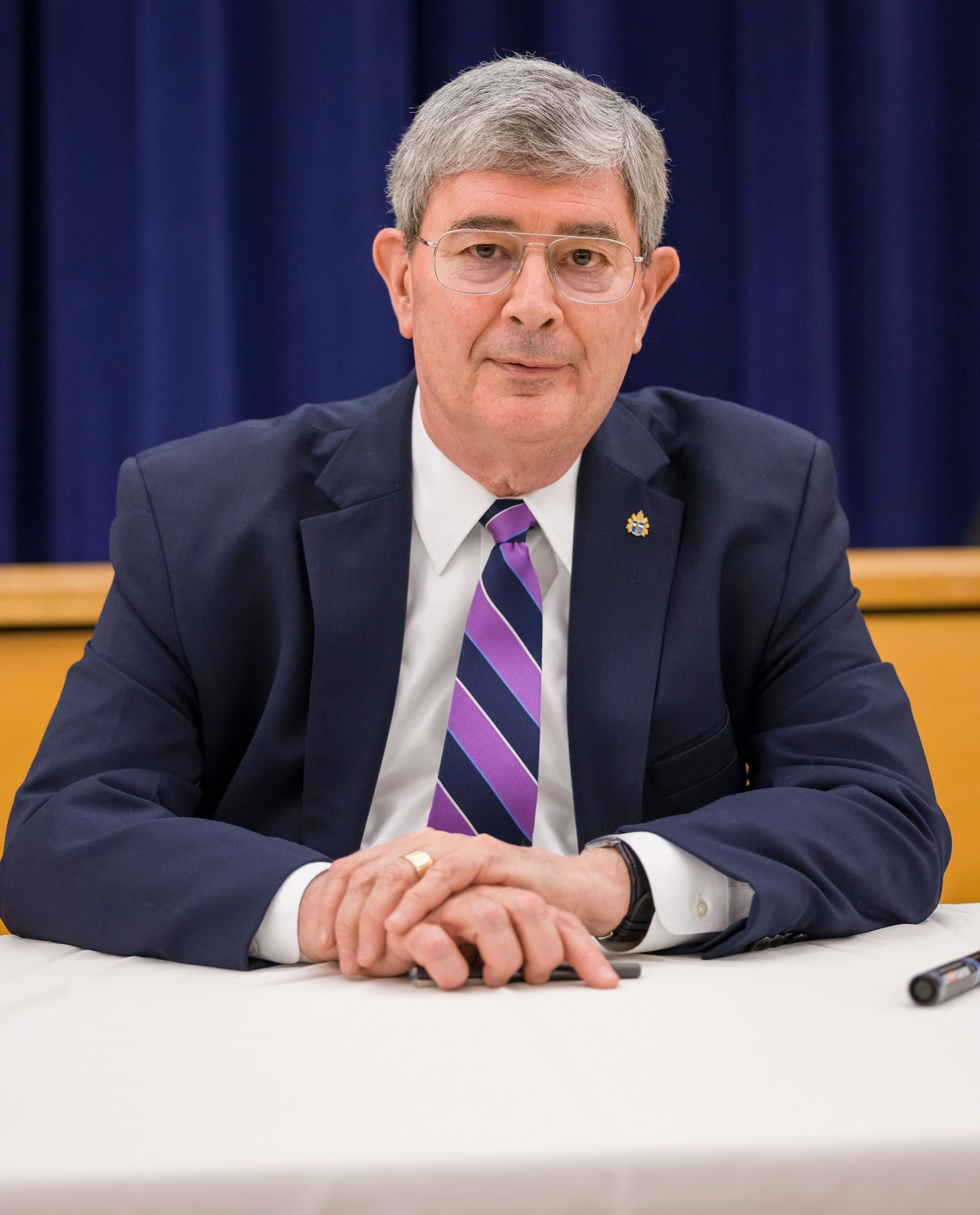The ecclesiastical propaganda machine created for last October’s Synod on Synodality for a Synodal Church is still grinding away, and it’s getting both tiresome and worrisome.
As for tiresome: Cardinal Jean-Claude Hollerich, S.J., the General Rapporteur of Synods 2023 and 2024, informed us in a June 14 “news” release from the Vatican’s Synod office that “the Holy People of God has been set in motion for mission thanks to the synodal experience.” Well, no, Your Eminence, that’s not quite right.
God’s holy people were set in motion for mission by the Lord Jesus two millennia ago, when the apostolic band was instructed to “Go therefore and make disciples of all nations, baptizing them in the name of the Father and of the Son and of the Holy Spirit” (Matt. 28:19). The apostles were confirmed in that mission by the outpouring of the Holy Spirit recorded in Acts 3, and the Church has continued in mission ever since. The character and scope of the Church’s twenty-first-century mission were identified by Pope St. John Paul II in the 1990 encyclical Redemptoris Missio (The Mission of the Redeemer), which taught that every Catholic is baptized into a missionary vocation and that everywhere is mission territory. The living and vibrant parts of the world Church have embraced that teaching and are living it today.
The notion that the “synodal experience” has set the Church in motion for mission is thus preposterous historically. It is also propaganda for an exercise that has thus far been bogged down in the ecclesiastical navel-gazing against which Cardinal Jorge Mario Bergoglio, S.J., warned in the pre-conclave address to the General Congregation of Cardinals that helped bring him to the Office of Peter. Pope Francis repeated that admonition against ecclesial self-referentiality in a homily the day after his election.
As for Synod 2023, it bore no resemblance to the first Christian Pentecost. For after the descent of the Holy Spirit, the first Christians did not sit around as a small group in the Upper Room, saying, “Wow. That was something. Let’s talk about it.” No, they went straight out into the streets on mission, “and there were added that day about three thousand souls” (Acts 3:41). Nothing quite like that followed the tedious and manipulated small group “Conversations in the Spirit” at Synod 2024.
Will things change in October at Synod 2024? There are reasons to be skeptical.
From June 4–14, a group of theologians worked—my clumsy fingers almost typed “woked!”—to help prepare Synod 2024’s working document, based on post–Synod 2023 reports the Synod General Secretariat had received. The theologians invited seemed to reflect the Synod office’s DEI concerns, although their diversity was not notably theological. Catholic theology in the United States and American theologians working abroad (in some instances, a ten-minute cab ride from the Synod office) are among the Church’s most creative thinkers today. Yet you would look hard (and unsuccessfully) to find members of the U.S.-based Academy of Catholic Theology or the U.S.-based Sacra Doctrina Project prominent among those called to Rome for this ten-day consultation—and this despite the fact that members of those organizations tick all the seemingly-requisite ethnic, racial, and “gender” boxes. Is there an implicit bias at the Synod office, according to which the dynamically orthodox need not apply?
Cardinal Hollerich is not the only member of the College of Cardinals who is spinning tales of the “synodal process” that raise concerns about Synod 2024. The General Secretary of the Synod, Cardinal Mario Grech, has been traveling the world extensively since Synod 2023, on what some churchmen take to be a campaign for the papacy, or at the very least a campaign to be a Great Elector in the next conclave. Be that as it may, the cardinal’s interview last March with a Swiss newspaper set off several alarm bells.
First, the cardinal allowed as how, “when we speak of unity, of communion, we are not referring to unity of thought.” Really? Are we not in the communion of unified conviction when we recite together the Nicene Creed? The Apostles’ Creed? Is local-option Catholicism —the kind of Catholicism in which a grave sin in Poland is a source of grace ten miles away, on the other side of the Polish-German border—really Catholic (which, after all, means “universal”)?
Then the cardinal said that he imagines the Church “as a rainbow.” An interesting image, that. Grech is Maltese, which means that English is entirely familiar to him. So it is impossible for him not to grasp what referring to a “rainbow Church” signals in today’s globalized culture.
It promises to be an interesting October in Rome.
George Weigel’s column “The Catholic Difference” is syndicated by the Denver Catholic, the official publication of the Archdiocese of Denver.

George Weigel is Distinguished Senior Fellow of Washington, D.C.’s Ethics and Public Policy Center, where he holds the William E. Simon Chair in Catholic Studies.
First Things depends on its subscribers and supporters. Join the conversation and make a contribution today.
Click here to make a donation.
Click here to subscribe to First Things.
Image by Benjamin Fray, licensed via Unsplash License. Image cropped.




